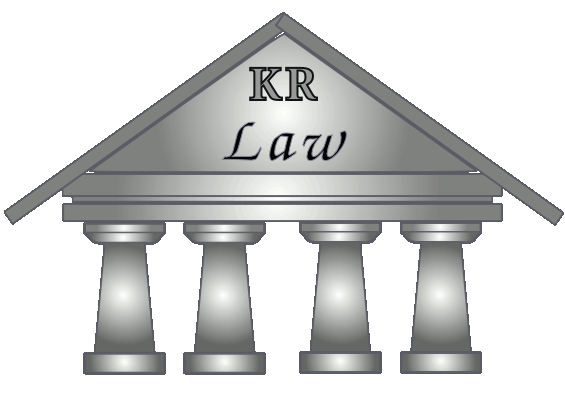Free Tools for Potential Clients
Probate Cost Calculator
Free Articles for Potential Clients
Coming Soon . . .

Attorney Profile
Kristina E. Rubio worked in the legal field in Santa Clara County for 12 years where she drafted attorney documents and pleadings well in advance of becoming an attorney. Kristina E. Rubio attended law school at Lincoln Law School of San Jose and graduated with a JD Degree in June of 2009. Kristina E. Rubio passed the California Bar Exam on her first attempt and is currently a member of the California Bar Association and American Bar Association.
Awards
- 1989 – American Legion School Award for honor, courage, scholarship, leadership and service
- 2007-2008 – Academic Excellence Award for Real Property II
California Bar/
American Bar Association Member

Notary Services Now Available

Services
- Wills
- Probate Avoidance Trust
- Annual Corporate
Meeting Minutes
- Residential Leases
- Commercial Leases
Why you should choose me as your lawyer
- I'm dedicated to keeping overhead expenses low so that an affordable hourly rate can be achieved
- I create customized and tailor made legal documents-something you won't get from the cookie cutter templates offered at office stores and on the web
- I don't nickel and dime clients for postage and photocopying
- I handle a smaller client volume so that I can give you a more personalized service
- I passed the bar on my first try
Contact Me
- Email:
kristina@kristinarubiolaw.com - Mail:
Law Office of
Kristina E. Rubio
1177 Branham Lane #408
San Jose, California 95118 - Phone:
408.439.7131 - Fax/Voicemail:
408.266.5615 - Physical Address:


Areas of Practice
Kristina E. Rubio provides legal services primarily in the following areas:
- Civil Litigation
- Will prepare pleadings at all stages of the litigation process for in pro per parties at a transactional rate. An in proper party is one who represents himself or herself
- Copyright Registration
- Business Formation
- General partnerships and/or limited partnerships
- S & C Corporations
- Limited Liability Companies
- Operating agreements
- Purchase or Sale Agreements
- Registering fictitious business names
- Annual Board of Directors and Shareholders' Meeting Minutes
- Leases
- Commercial / Residential / 3-day notices/ notice of belief of abandonment
- Estate Planning / Trust Law
- Drafting Wills, Trusts, Powers of Attorney (Health Care / Financial Affairs)
- Trust Administration
- Probate
- Deed Transfers
Services for Attorneys
Independent Contractor Services
As a young lawyer, I am always looking for opportunities to learn. As such, using my office to provide independent contractor services for your clients can serve several valuable purposes.
- You can pass cost savings onto your client
- Using independent contractor services also allows you to retain all of your clients/potential clients who may decide to try a different lawyer who charges less while still providing them with a lesser hourly rate
- If you can provide me with an opportunity to learn something which I have not done before or do not have a lot of experience doing,in exchange for mentoring me, I would be willing to cut my hourly rate in half
- Due to the economics involved in prosecuting or defending a litigation action, using independent contractor services in the drafting and research of various litigation pleadings, discovery, etc., while you maintain total control over the case management may encourage more people to assert or defend their rights as it becomes more affordable for them to do so
Frequently Asked Questions/Answers
- What is a Will?
- A Will is a document you prepare while living which, among other things, names the individuals (beneficiaries) who are to receive your assets on your death. A will can also provide the name of the individual who is to distribute your assets on your death (executor); name the individual who will serve as guardian to any minor children on your death; name the individual who will care for any pets on your death and describe any funeral or burial wishes. Back to Faq
- Who needs a Will, and why?
- Under California law, if you do not leave a will or a trust, the State will decide who will receive your assets and in what amounts. In addition, if your assets are over the amount set by statute, then your executor will have to file a probate action in order to gain access to your assets. The fees associated with a probate can add up quickly and all fees are deducted from the assets before distribution to the beneficiaries. If you have assets that you want to leave to specific individuals; minor children; pets or specific burial/funeral wishes, then you should have a will. Back to Faq
- What is a Trust?
- A Trust is a document you prepare while living which, among other things, pools all of your assets together to allow for the efficient administration of those assets during your lifetime and allows for easy transfer on your death. This is accomplished through 2 stages. First, you establish the trust and the trust terms and second, you transfer title to your assets to the official name of your trust (funding the trust). Any asset not titled in the name of your trust falls under your probate estate and may possibly be subjected to a probate action depending on the nature and value of the asset. A trust normally entitles the creator of the trust (grantor/settlor) to all net income and principal of the trust estate while living (which consists of all assets titled in the trust). On the death of the creator, you specify who you would like to receive your assets; in what proportion and in what manner. Back to Faq
- Who needs a Trust, and why?
- If you want to avoid having probate costs deducted from your assets prior to distribution of your assets to your beneficiaries or you own a piece of real property, then you should have a simple trust. If you have a large estate, then a more complex trust which takes taxes into consideration can be extremely helpful. If you have children with special issues or you want your beneficiaries in general to receive your assets in a certain manner, a trust can be helpful in controlling how your assets are received. You can always establish a trust under a will (testamentary trust), however, that will not avoid having to file a probate action. You have to prepare a separate trust document and make sure all assets get titled in your trust in order to avoid the probate process all together. Back to Faq
- Why hire an attorney, when free/cheaper methods exist?
- I had a grandfather who, while he was living, used to purchase pre made leases from his local stationary store in the belief
that he did not need legal services in preparing a lease for his tenants. The boilerplate lease purchased had a provision asking
the tenant to name every pet living at the premises but had no provision actually preventing the tenant from allowing urine to
collect on the inside of the premises. While I have never purchased a pre made Will or Trust from the local stationary store, I
would say that you either need to be able to read the document and ensure that it says exactly what you want it to say and accomplish
exactly what your goals are or you need to see a lawyer who can help you with that.
- Cookie-cutter wills/trusts often lack specific provisions needed in your particular situation
- Cookie-cutter wills/trusts contain legal language that you may not fully understand
- Cookie-cutter wills/trusts must apply to the widest possible audience, and thus may not coincide with the specific goals of your estate Back to Faq
- I had a grandfather who, while he was living, used to purchase pre made leases from his local stationary store in the belief
that he did not need legal services in preparing a lease for his tenants. The boilerplate lease purchased had a provision asking
the tenant to name every pet living at the premises but had no provision actually preventing the tenant from allowing urine to
collect on the inside of the premises. While I have never purchased a pre made Will or Trust from the local stationary store, I
would say that you either need to be able to read the document and ensure that it says exactly what you want it to say and accomplish
exactly what your goals are or you need to see a lawyer who can help you with that.
